Recommended video series
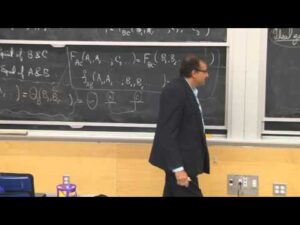
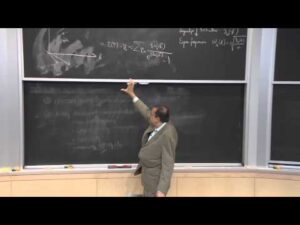
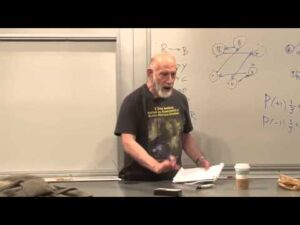
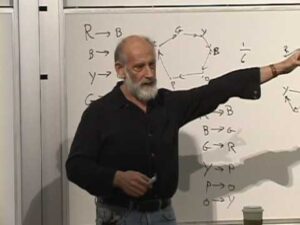
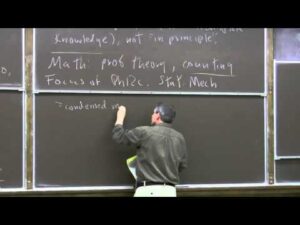
Recommended books
Molecular Driving Forces, Second Edition, is an introductory statistical thermodynamics text that describes the principles and forces that drive chemical and biological processes. It demonstrates how the complex behaviors of molecules can result from a few simple physical processes, and how simple models provide surprisingly accurate insights into the workings of the molecular world.
Widely adopted in its First Edition, Molecular Driving Forces is regarded by teachers and students as an accessible textbook that illuminates underlying principles and concepts. The Second Edition includes two brand new chapters: (1) “Microscopic Dynamics” introduces single molecule experiments; and (2) “Molecular Machines” considers how nanoscale machines and engines work. “The Logic of Thermodynamics” has been expanded to its own chapter and now covers heat, work, processes, pathways, and cycles. New practical applications, examples, and end-of-chapter questions are integrated throughout the revised and updated text, exploring topics in biology, environmental and energy science, and nanotechnology. Written in a clear and reader-friendly style, the book provides an excellent introduction to the subject for novices while remaining a valuable resource for experts.
Statistical mechanics is the theoretical apparatus used to study the properties of macroscopic systems – systems made up of many atoms or molecules – and relates those properties to the system’s microscopic constitution. This book is an introduction to statistical mechanics, intended to be used either by advanced undergraduates or by beginning graduate students. The first chapter deals with statistical thermodynamics and aims to quickly derive the most commonly used formulas in the subject. The remainder of the book then illustrates the application of these formulas in traditional areas such as the ideal gas and less traditional areas such as the quantum ideal gas. Highly illustrated with numerous exercises and worked solutions, it provides a concise treatise of statistical mechanics ideal for use on an 8-12 lecture course.
A Modern Course in Statistical Physics is a textbook that illustrates the foundations of equilibrium and non-equilibrium statistical physics, and the universal nature of thermodynamic processes, from the point of view of contemporary research problems.
The book treats such diverse topics as the microscopic theory of critical phenomena, superfluid dynamics, quantum conductance, light scattering, transport processes, and dissipative structures, all in the framework of the foundations of statistical physics and thermodynamics. It shows the quantum origins of problems in classical statistical physics. One focus of the book is fluctuations that occur due to the discrete nature of matter, a topic of growing importance for nanometer scale physics and biophysics. Another focus concerns classical and quantum phase transitions, in both monatomic and mixed particle systems.
This fourth edition extends the range of topics considered to include, for example, entropic forces, electrochemical processes in biological systems and batteries, adsorption processes in biological systems, diamagnetism, the theory of Bose-Einstein condensation, memory effects in Brownian motion, the hydrodynamics of binary mixtures.
link: https://onlinelibrary.wiley.com/doi/book/10.1002/9783527690497
Statistical physics has its origins in attempts to describe the thermal properties of matter in terms of its constituent particles, and has played a fundamental role in the development of quantum mechanics. Based on lectures taught by Professor Kardar at MIT, this textbook introduces the central concepts and tools of statistical physics. It contains a chapter on probability and related issues such as the central limit theorem and information theory, and covers interacting particles, with an extensive description of the van der Waals equation and its derivation by mean field approximation. It also contains an integrated set of problems, with solutions to selected problems at the end of the book and a complete set of solutions is available to lecturers . A companion volume, Statistical Physics of Fields, discusses non-mean field aspects of scaling and critical phenomena, through the perspective of renormalization group.
The book is divided into four major sections. Part I deals with the principles of quantum statistical mechanics and includes discussions of energy levels, states and eigenfunctions, degeneracy and other topics. Part II examines systems composed of independent molecules or of other independent subsystems. Topics range from ideal monatomic gas and monatomic crystals to polyatomic gas and configuration of polymer molecules and rubber elasticity. An examination of systems of interacting molecules comprises the nine chapters in Part Ill, reviewing such subjects as lattice statistics, imperfect gases and dilute liquid solutions. Part IV covers quantum statistics and includes sections on Fermi-Dirac and Bose-Einstein statistics, photon gas and free-volume theories of quantum liquids.
Leading physical chemist David Chandler takes a new approach to statistical mechanics to provide the only introductory-level work on the modern topics of renormalization group theory, Monte Carlo simulations, time correlation functions, and liquid structure. The author provides compact summaries of the fundamentals of this branch of physics and discussions of many of its traditional elementary applications, interspersed with over 150 exercises and microcomputer programs.
link: https://www.amazon.com/Introduction-Modern-Statistical-Mechanics-Chandler/dp/0195042778
The canonical ensemble – Other ensembles and fluctuations – Boltzmann statistics, fermi-dirac statistics, and bose-einstein statistics – Ideal monatomic gas – Ideal diatomic – Classical statistical mechanics – Ideal polyatomic – Chemical equilibrium – Quantum statistics – Crystals – Imperfect gases – Distribution functions in classical monatomic liquids – Perturbation theories of liquids – Solutions of strong electrolytes – Kinetic theory of gases and molecular collisions – Continuum mechanics – Kinetic theory of-gases and the boltzmann equation – Transport processes in dilute gases – Theory of brownian motion – The time-correlation function formalism.
link: https://www.amazon.com/Statistical-Mechanics-Donald-McQuarrie/dp/8130918935
